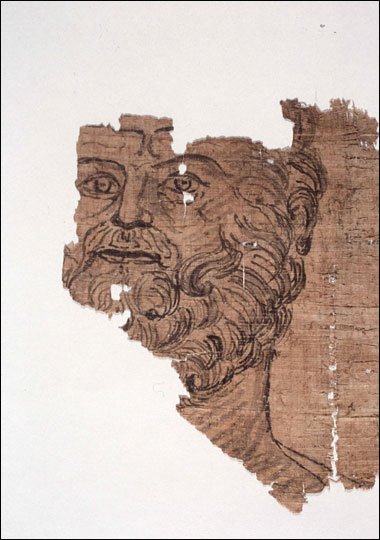Tuesday, May 27, 2008
Map of Happiness
Colloque international, Université de Nancy 2: "Expertus sum : l’expérience par les sens en philosophie naturelle médiévale"
Date et lieu
Du jeudi 5 février 2009 à 9h00 au samedi 7 février à 13h, à l’Université Nancy 2, Campus Lettres et Sciences Humaines, 3 place Godefroid de Bouillon, 54000 Nancy, France.
Organisation et Contacts
- Atelier Vincent de Beauvais, Encyclopédisme et transmission des connaissances (UMR 7002 Moyen Age) : Isabelle Draelants isabelle.draelants@univ-nancy2.fr
- Laboratoire d’histoire des sciences et de Philosophie, Archives Henri Poincaré, (UMR 7117) : Thomas Bénatouïl thomas.benatouil@univ-nancy2.fr
Thématique
La thématique de l’expérience sera abordée sous les aspects de la théorie de la connaissance, des liens entre experientia et auctoritas, de la formulation de l’expérience dans les textes et du genre littéraire consacré à l’expérience. On envisage d’examiner les questions suivantes :
Comment l’expérience par les sens est-elle considérée par les philosophi naturales par rapport à la rationalité ?
Importance de la transmission des connaissances dans l’évolution de la notion d’expérience.
Influence des textes traduits du grec, de l’arabe et de l’hébreu sur l’émergence de l’expérience et les mutations consécutives des classifications des sciences.
Parts respectives de l’auctoritas livresque et de l’expérience par les sens dans les ouvrages de philosophie naturelle. Signification des expressions expertus sum, cum expertum fuerit, experimentator, etc., dans les textes philosophiques (commentaires, compilations didactiques, questions disputées, etc.).
Théories de la forme spécifique, de la forme substantielle, des qualités naturelles, etc. : la philosophie de la nature face à l’expérience.
Naissance du genre des experimenta – leur place dans les domaines de la médecine, de la pharmacopée, de l’alchimie, de l’astrologie, de la physiognomonie et en général dans les sciences naturelles. Avec une attention particulière pour l’évolution des disciplines savantes suite à l’émergence de la magie.
Limites chronologiques et principe d’organisation
La période d’assimilation des connaissances qui accompagne ou succède à la traduction des textes greco- et arabo-latins (12e-14e s., avec prolongements éventuels), mais en tenant compte de la transmission des savoirs depuis l’Antiquité.
C’est la raison pour laquelle l’organisation du colloque prévoit non seulement l’intervention de médiévistes comme orateurs, mais aussi de spécialistes de l’Antiquité comme « discutants » pour chacune des « sessions » du colloque.
More details on Calenda
pipl - search people on the Internet
Thursday, May 22, 2008
The Artemidorus Papyrus Conference

St. John's College, Oxford University, June 13th, 2008.
The one-day conference at St John's College, Oxford, aims to bring specialists on all aspects of the papyrus together. We are especially glad that colleagues from Germany, Italy, Switzerland, the UK and the USA have agreed to participate: While Prof Dr Luciano Canfora (Bari/Italy) has had to cancel due to other commitments, we shall hear Prof Dr Margarethe Billerbeck (Fribourg/CH), Prof Dr Bärbel Kramer (Trier/Germany), Dr Dirk Obbink (Oxford/UK), Prof Dr Peter Parsons (Oxford/UK), Nicholas Purcell FBA (Oxford UK), Prof Dr Richard Talbert (UNC Chapel Hill/USA) and Prof Dr Nigel Wilson (Oxford/UK).
The aim of the conference is to study the artefact, and its text, map, and images, as "gobbets" first (in a well-established Oxford tradition), thus contributing to a deeper understanding of what the papyrus presents, before discussing probabilities and authenticities.
Official website: www.artemidorus.de
Tuesday, May 13, 2008
Saint Anselm of Canterbury and His Legacy
Keynote speaker: Rev. Brian Davies, O.P.
Official website: http://www.dur.ac.uk/cmrs/conferences/anselm2009/
Blog: http://anselm2009.blogspot.com/
Wednesday, May 07, 2008
The Virtues and the Formation of the Feminine Moral Subject: 1250-1550
Our focus will be on works dedicated to women or written for their edification, such as devotional texts and manuals for princesses, as well as ethical and didactic works written by women such as Marguerite Porete, Christine de Pizan, Laura Cereta, Vitoria Colonna, Gabrielle Bourbon, Marguerite of Navarre, etc. Writing during a period when contemplative spirituality vied with more classical representations of active virtue, and against the background of Aristotelian and biblical representations of women as defective males and as particularly susceptible to vice, the above women adopted various strategies of self-authorization. We are particularly interested in exploring the continuities and discontinuities between women’s texts, and in women’s understanding of the good life for women and men, as well as the differences, if any, between female and male authored texts. We also invite the discussion of Platonic, Stoic, Epicurean, Aristotelian and monastic conceptions of virtue in women’s self-representation as
virtuous subjects.
Could those interested in contributing to this stream indicate their interest as soon as possible and no later than 1st July 2008 to Karen.Green@arts.monash.edu.au. A 500 word abstract will be required by 20th August 2008.
A published volume on the topic is proposed. Contributors who are unable to attend the Hobart Conference, but would like to contribute a paper to the volume are invited to submit papers for consideration by December 15th 2008.
Convenors: Janice Pinder, Constant Mews and Karen Green.
Augustine Again: "After Augustine. A Survey of His Reception from 430 to 2000"
More details: http://www.st-andrews.ac.uk/classics/after-augustine/
Platonic Colloquia, IX (2008), Phaedrus
The abstracts please send to:
Dr. Artur Pacewicz
University of Wroclaw
Institute of Philosophy
ul. Koszarowa 3
51-149 Wrocław
art_pac@wp.pl
New Augustinian Sermons Found
Three of the new Erfurt sermons deal with aspects of charity and almsgiving (Erfurt 2, 3, 4). Two others were delivered at feasts of martyrs: Erfurt 1 is on Perpetua and Felicitas, Erfurt 6 (probably incomplete) on Cyprian. One sermon deals with resurrection (Erfurt 5).
The new texts will be edited in two parts: Erfurt 1, 5, and 6 in Wiener Studien 121 (2008), Erfurt 2, 3, and 4 in Wiener Studien 122 (2009)."

Source: http://www.oeaw.ac.at/kvk/kv09engl.htm